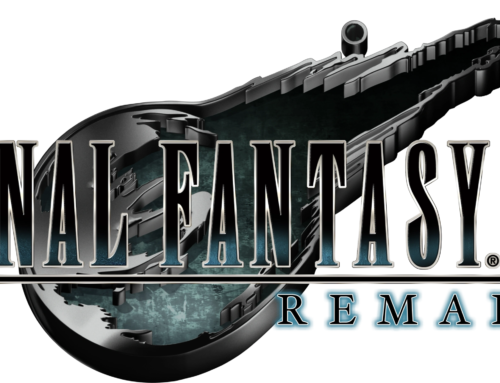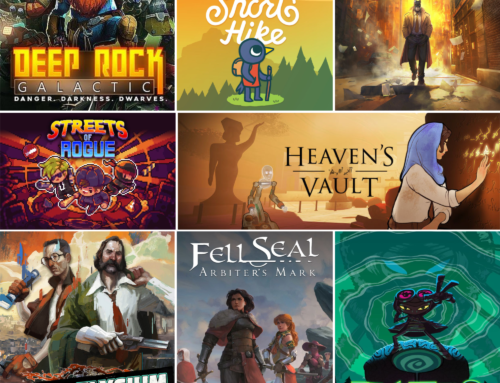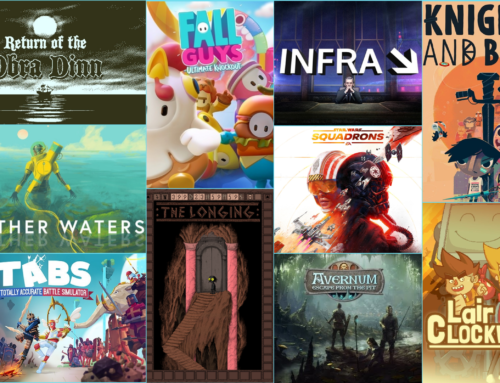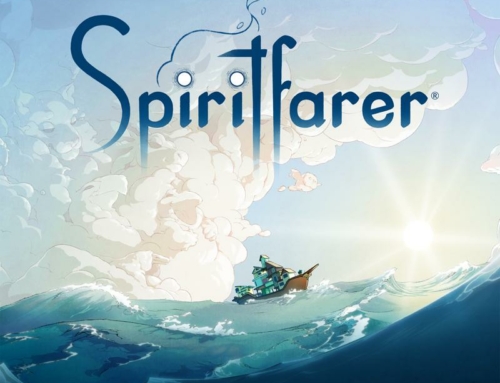Welcome to Game Club, where Joanna Price and myself exchange letters about a game we’ve jointly played. This time, we’re discussing Spiritfarer, a “cozy management game about death”. This is a response to Joanna’s first letter.
Hello Joanna,
I’m actually surprised by how in sync we are. While I think I enjoyed Spiritfarer a bit more than you, I agree that the glowing reviews – which can pretty much all be boiled down to “everything about this game is perfect and wonderful and it has no flaws” [1] – are not reflective of my experience with the game. I think it has a lot of lovely components, sometimes extraordinarily so, but I think they never gel holistically, and it took me a good amount of reflection to figure out why. In short: Spiritfarer’s brilliant marketing pitches it as “a cozy management game about dying,” and this is technically true, but also misleading. It’ll take a little space to explain what I mean.
“Cozy management” is, from a marketing standpoint, shorthand for “like Stardew Valley or Animal Crossing,” which is to say, a game where you manage resources and relationships, but where there is no fail state, nothing you can permanently miss or lose, and no bad consequences for your decision. It turns out that there’s an ENORMOUS market for this sort of game, it’s relatively underserved, and as an added benefit you can make these games on a relatively modest budget.
The problem is that there’s a fine line between pleasantly pottering around and busywork, and the only thing that separates a ‘cozy management’ game from an idle game (ala Cookie Clicker and its million children) is a certain amount of fleshing out of the world. In Stardew Valley and Animal Crossing, this is in the form of characters with their own stories and schedules; special events that only happen during certain times; and changing environments, namely how different plants/fish/etc are available during different seasons. All of these additional elements are, ideally, enough to elevate the game from a series of repetitive tasks to a living, breathing world you like to inhabit (for me, Stardew Valley very much accomplishes this, and all of the Animal Crossings past the first one do not, but I’m in the minority there).
Spiritfarer ditches the world simulation elements in favor of a more narrative-oriented approach. There’s nothing wrong with this – it’s novel, even – and I loved the early hours of the game, as its world and game systems unfolded and you discovered all sorts of new places with your ship. As the game wore on, I still felt compelled to play, but the motivation increasingly shifted from the intrinsic (appreciating the world and characters and gameplay) to extrinsic (getting the next unlock, achieving a completion state for all the character’s stories). I enjoyed the lighthearted dialog, but it travels in ambiguity and symbolism a lot, and I found I increasingly couldn’t be bothered to attempt to untangle the mystery of each character’s backstory. The minigames, originally pleasant diversions, came to dominate more and more of my playtime, and they never connected to the narrative core of the game. I spent hours growing vegetables and picking fruit, shearing sheep and milking cows, cutting lumber and smelting ore, all to chase the dopamine hit of another boat upgrade complete or recipe discovered. On their own terms the loops are well designed, the minigames satisfying (though eventually repetitive, and I could see why you would find them obnoxious), but they have absolutely nothing to do with the player’s mission to counsel and guide lost souls.
You write that “this game needs to choose a path,” and I dearly wish they would have focused on narrative with some light platforming/adventure game elements (ala Night in the Woods) rather than all these Skinner boxes, though I suspect it would have sold less well if they had; every indie game needs a pitch to distinguish it, and “cozy management” is an easy sell, “narrative platformer” and incredibly difficult one due to how crowded that field is.
I still think a lot of people would enjoy Spiritfarer – it’s lightweight and pleasant and sometimes that is exactly what you want in a game. But a few moments aside (the ones you mentioned!) the game didn’t really stick with me.
I would love to play The First Tree. I’d also love to play I Am Dead, a game that came out around the same time as Spiritfarer and is also (as the title suggests) a beautiful indie game about death. It takes a more classical adventure game format, and as far as I can tell it sank like a stone despite glowing reviews. Maybe that one will hit for us?
P.S. I absolutely did recruit Buck, and enjoyed his character, but was confused as to why he was the only character not allowed to pass on. It seemed like a thread was missing.
- [1] Literally the only criticism I’ve seen leveled against the game was a number of people feeling that the writing of a certain scene was ableist, and the developers publicly apologizing and promising that they would rewrite it. Incredibly, both of us have identified this scene (Gustav’s farewell, where he talks about the purpose of art) as one of the game’s finest. Go figure. ↩






Leave A Comment